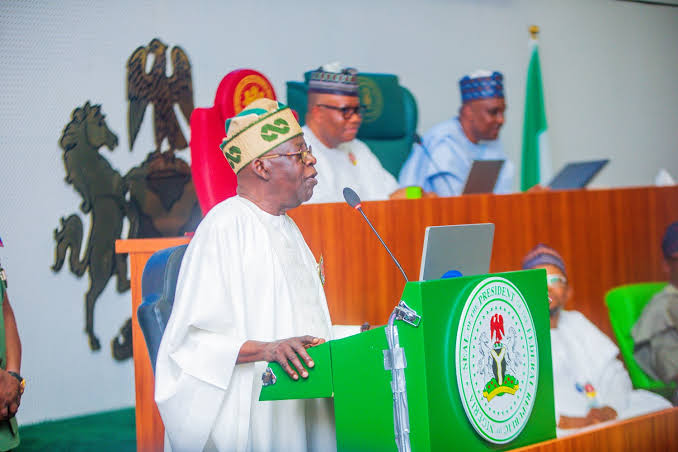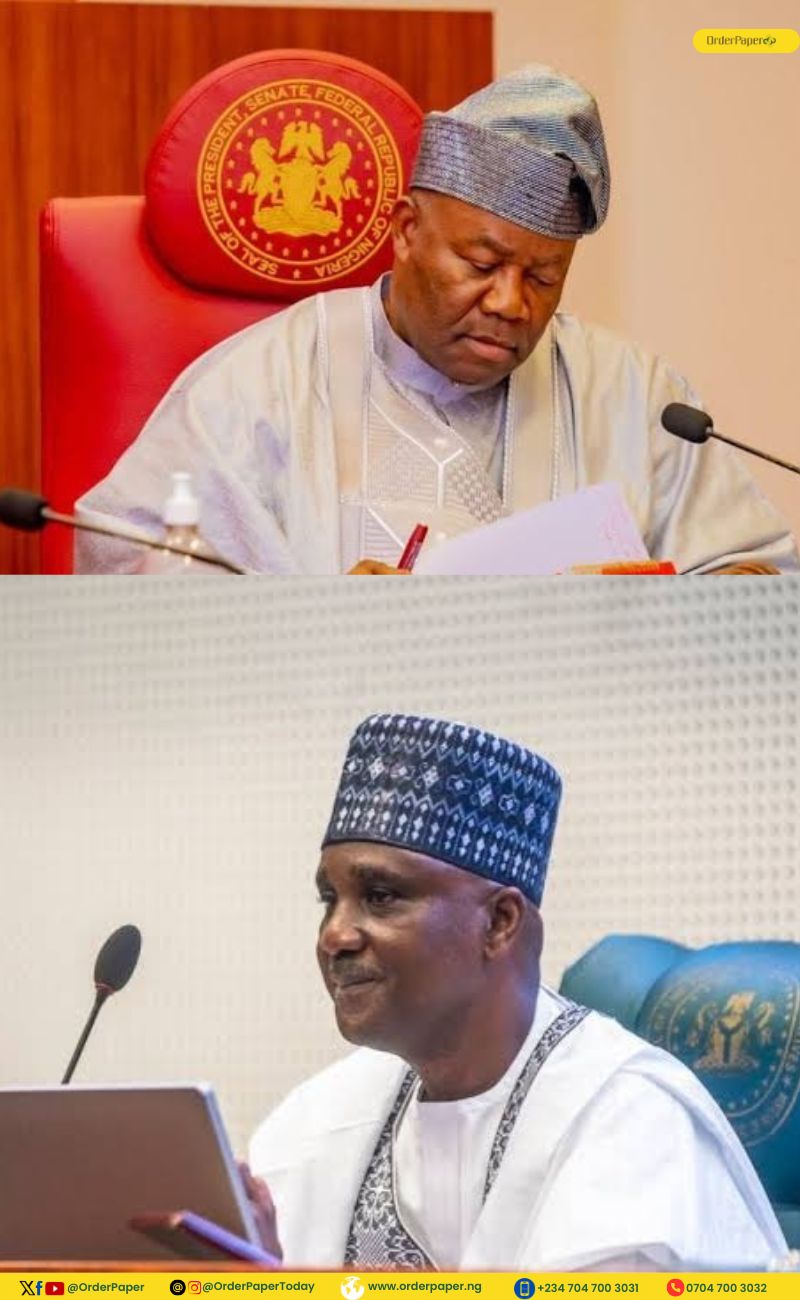Looking forward, the President presented the 2025 budget proposal as a transformative plan designed to revamp Nigeria’s economy.

President Bola Ahmed Tinubu has presented the 2025 budget to a joint session of the National Assembly, themed “securing peace, rebuilding prosperity.”
The budget was presented to a joint session of the National Assembly on Wednesday, December 18, 2024.
In his address to the National Assembly, President Tinubu provided a comprehensive overview of the current state of the Nigerian economy, the achievements under the 2024 budget, and the proposed fiscal plan for 2025. He highlighted the progress made in stimulating the economy and outlined the ambitious targets set for the upcoming fiscal year.
The president noted that the Nigerian economy has shown positive responses to the fiscal stimulus measures implemented by his government. He emphasised the government’s focus on further stimulating economic growth through targeted fiscal policies, which would include specific public expenditure plans designed to avoid inflationary pressures while driving growth. He stressed the importance of these initiatives, which aim to strengthen the socio-economic fabric of the country and prepare it for long-term prosperity.
Looking forward, the president presented the 2025 budget proposal as a transformative plan designed to revamp Nigeria’s economy. The budget aims to generate 34.82 trillion naira in revenue to fund key projects and government initiatives.
On the performance of the 2024 budget, President Tinubu shared some results. By the third quarter of 2024, the administration had achieved 14.55 trillion naira in revenue, which accounted for 75 percent of the target set for the year. Government expenditure for the same period reached 21.60 trillion naira, or 85 percent of the planned expenditure. While challenges remain, the president highlighted the improvements in revenue collection and the fulfillment of key financial obligations. He noted that the positive impacts of these efforts are beginning to be felt across the economy, with gradual signs of transformation.
He said, “I am happy to inform this national assembly that our administration attained remarkable milestones in implementing the 2024 Budget. In 2024, we achieved: ₦14.55 trillion in revenue, meeting 75 per cent of our target as of the third quarter, 21.60 trillion naira in expenditure, representing 85 per cent of our target, also in the third quarter. While challenges persist, we improved revenue collection and fulfilled key obligations. The transformational effects of this on our economy are gradually being felt.”
READ ALSO: 2024 budget: Renewed hope may turn renewed hopelessness if…
The president then outlined the philosophy behind the 2025 budget. He described it as an ambitious but necessary budget aimed at securing the country’s future. The proposed government expenditure for 2025 is set at 47.90 trillion naira, which includes 15.81 trillion naira earmarked for debt servicing. As a result, the budget will result in a deficit of 13.08 trillion naira, or 3.89 percent of Nigeria’s GDP. Despite the deficit, the president emphasised that this budget was crucial for the country’s long-term stability and economic growth.
Several key economic projections were also included in the budget. Inflation, currently at 34.6 percent, is projected to decline to 15 percent by the end of 2025. The exchange rate is expected to improve from approximately 1,700 naira per US dollar to 1,500 naira, while the government anticipates an increase in crude oil production to 2.06 million barrels per day. These targets, the president noted, are underpinned by several factors: reduced petroleum product imports alongside increased exports of finished petroleum products, improved agricultural output driven by enhanced security, an increase in foreign exchange inflows from foreign portfolio investments, and a rise in crude oil exports, coupled with cost reductions in oil and gas production.
While acknowledging that the path to reform is challenging and requires sacrifices, Tinubu reassured the national assembly that these efforts would not be in vain. He expressed confidence that, despite the difficulties, the country was on a path to achieving its desired future and called for continued faith in the reform process.


